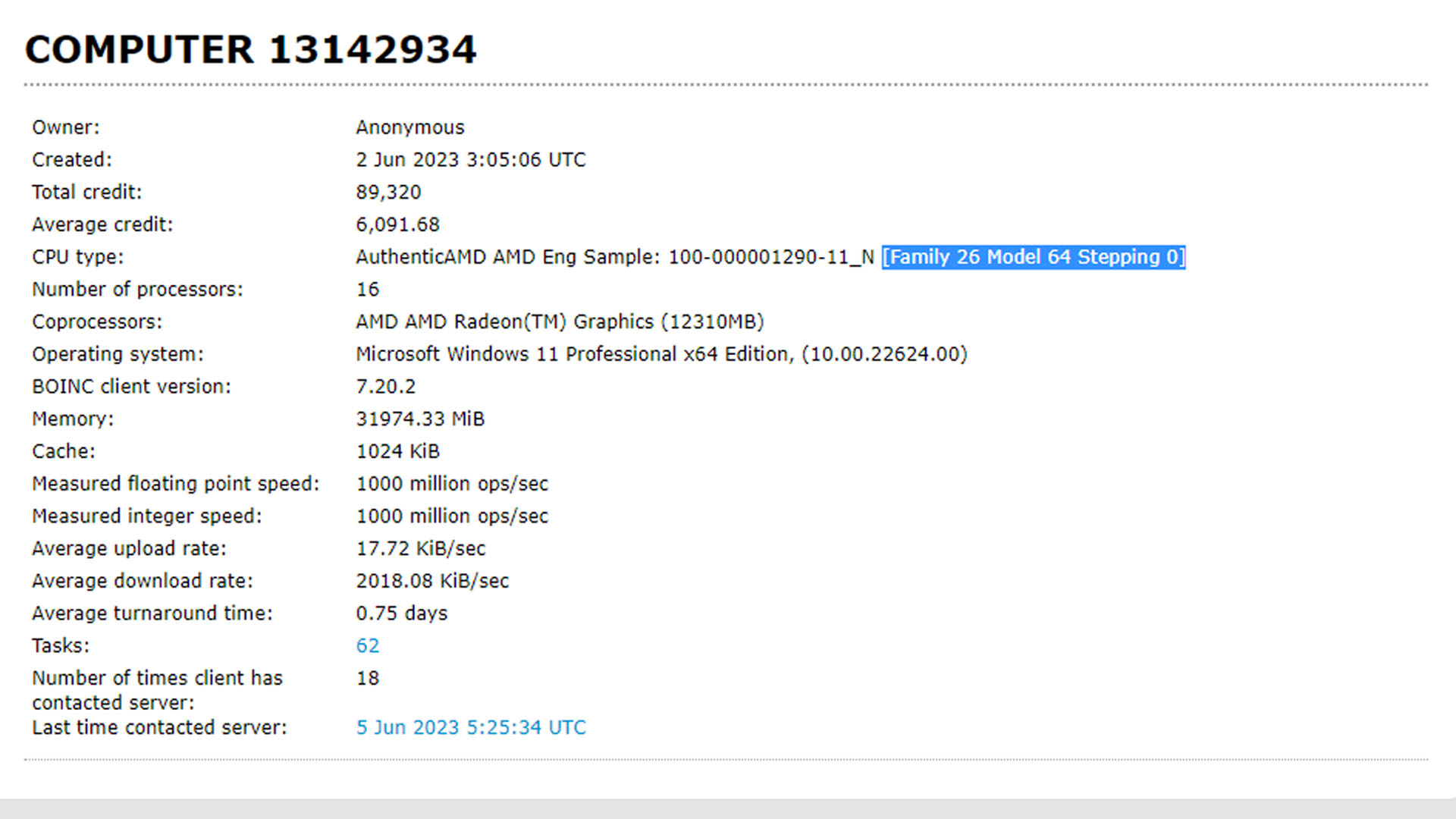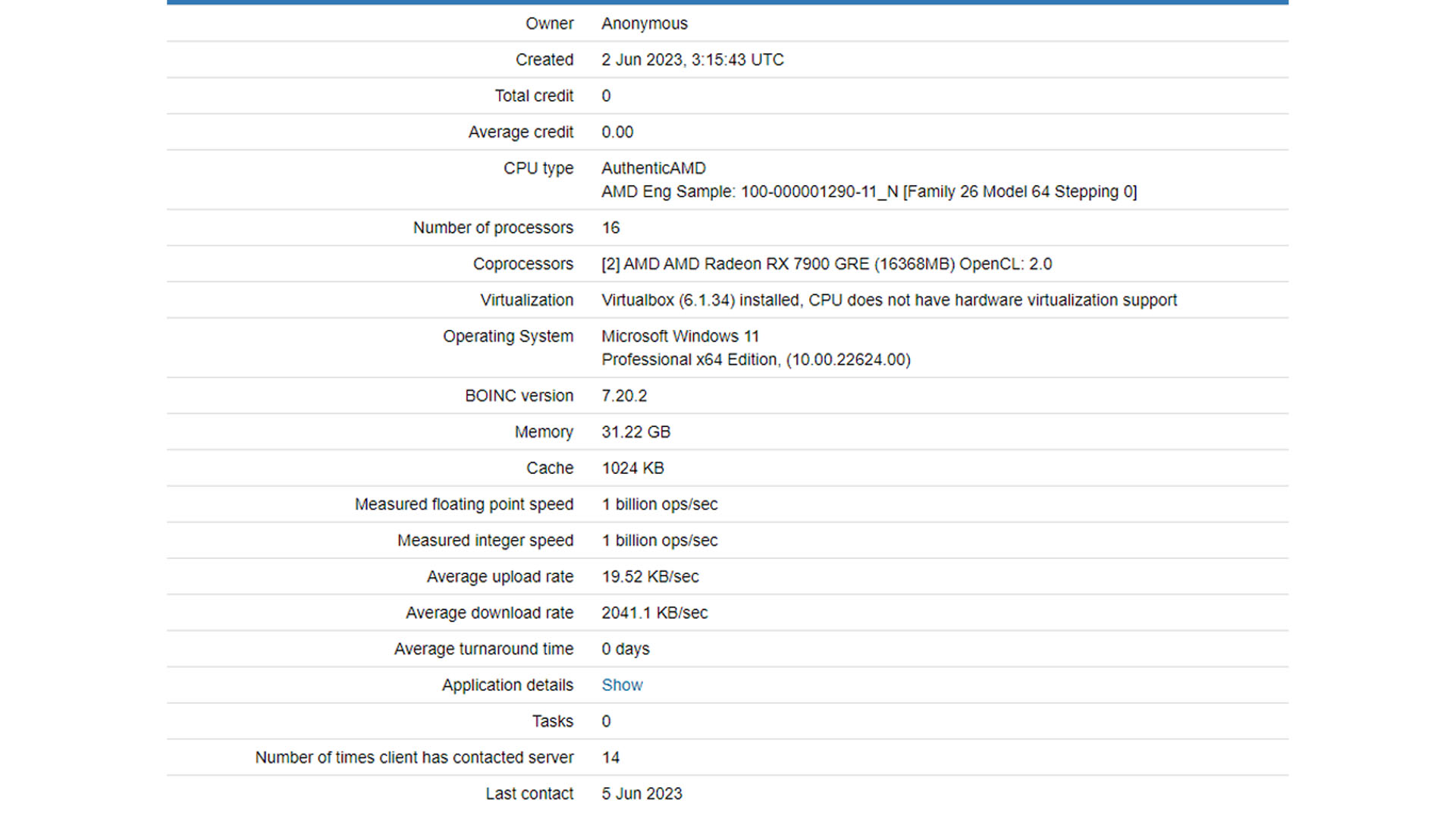The build-up to the release of the next-generation AMD Zen 5 CPUs continues as one of what we expect to be called the AMD Ryzen 8000 range of CPUs may have been spotted in some distributed computed platforms.
The Zen 5 CPU screenshots are taken from the einstein@home and LHC@home projects, which like the SETI@home project use spare computing power from computers all around the world to work on processing huge data sets. It seems someone testing a future AMD CPU was using these platforms and the openly available ‘host’ data of each platform logged the ID of the processor.


Image source: einstein@home and LHC@home
Now, the ID shown is not a generally recognizable brand name such as AMD Ryzen 7 7800X3D but rather an OPN code, which is an internal AMD product number. Crucially, alongside this OPN number it says ‘[Family 26 Model 64 Stepping 0]’ where the ‘Family’ refers to the generation of the CPU, and Family 26 is not a designation we’ve seen before.
Previously, Family 25 (19H in hexadecimal) was used for the Zen 3 and Zen 4 architecture, while Family 24 (18H) was used for Zen 2, Zen+, and Zen. As such it’s reasonable to assume Family 26 refers to a brand new architectural generation of processors.
Beyond this, the only other information about the mystery CPU is that it contains 16 processors, which you might think suggests a 16-core CPU but both einstein@home and LHC@home log logical threads as processors, rather than cores. In other words, it’s almost certain Zen will implement simultaneously multi-threading (SMT) where one core can handle two threads at once and is seen by software to have two ‘processors’ for each core. As such, this chip, whatever it is, is likely to have 8 cores able to process 16 threads.
It’s still very early days for Zen 5 with the Zen 5 release date confirmed for 2024. However, it’s always interesting to see just how development is going and how production and testing occur far in advance of products being available.
Will you be holding out for an AMD Ryzen 8000 upgrade next year? Let us know your thoughts on the Custom PC Facebook page, via Twitter, or join our Custom PC and Gaming Setup Facebook group and tap into the knowledge of our 390,000+ members.
